The situation with COVID-19 has continued to change and develop over the past year, months, weeks, and even days.
We’ve shared updates about the COVID-19 numbers in Florida and updates on Disney World’s mask rules to make sure you’re best prepared for your trips. One thing you’ve likely heard a lot about over the past few weeks is the Delta variant. What is the Delta variant? How could it impact your trip to Disney World? We’re breaking down the information you need to know here.
Before We Begin
Our name is “Disney Food Blog” and this is very clearly not a food-related article, so why are we sharing it? While the food at Disney World may be your FAVORITE part of the entire experience (hey, we’re right there with ya!), we know that a lot of factors play into your Disney trips.
That’s why we share news with you about things like rental car costs, airfare prices, and Airbnb costs. And it’s why we’ve been sharing news with you about COVID-19 and COVID-19 vaccines. We know that these can be really important issues, particularly as COVID-19 has had a BIG impact on the Disney parks in the past and could have an impact on it again in the future.
We want to make sure that we provide you with all of the latest information that could potentially impact your trip to help you feel extremely prepared for your vacation. And, in this day and age, one thing that could greatly impact travel, theme parks, and other places where you’re in contact with others is COVID-19 (and its variants). So, that’s why we’re sharing this today. We hope you find it helpful for your future trip planning.
What is the Delta Variant?
Let’s start with what the Delta variant is. The Delta variant is a variant of the COVID-19 virus. Essentially, as the World Health Organization shares, viruses change over time. So, this is a variant or changed form of the virus.
The Centers for Disease Control and Prevention (“CDC”) identifies COVID-19 variants either as ones of “interest,” “concern,” or “high consequence.” At the moment, the Delta variant is a variant of “concern.”
What does that mean? Well, a variant of concern is defined as one where there is evidence of an “increase in transmissibility, more severe disease, significant reduction in neutralization by antibodies generated during previous infection or vaccination, reduced effectiveness of treatments or vaccines, or diagnostic detection failures.”
All this boils down to this: variants have the potential to undo a lot of the progress the world has done to contain the virus. It could lower the effectiveness of the vaccine and potentially cause a serious threat. When it comes to the Delta variant specifically, the CDC has noted that the following are attributes of the variant:
- It has increased transmissibility (meaning it’s easy to spread)
- There is a potential reduction in neutralization by some EUA monoclonal antibody treatments
- There is a potential reduction in neutralization by post-vaccination sera (meaning it could potentially not be stopped by the vaccines)
That’s a whole lot of complicated words, so let’s break it down and see what you really need to know about this variant.
What Do You Need to Know About the Delta Variant?
There are a few big things you need to know about the Delta variant.
1 — It’s Highly Transmissible
As the CDC notes, one of the specific attributes of the Delta variant is that it has increased transmissibility. In fact, CNN notes that Tedros Adhanom Ghebreyesus, the director-general of the World Health Organization, has previously shared that “Delta is the most transmissible of the variants identified so far.”
The US Surgeon-General Dr. Vivek Murthy has also said that it is the most transmissible they’ve seen to date. CNBC shared that, while the Delta variant was discovered in October, it has since spread to more than 100 countries. The Los Angeles Times shared that the Delta variant is estimated to spread close to twice as readily as the original COVID-19 virus.
2 — It Accounts for a Lot of COVID-19 Cases in the US Now
CNBC has shared that the Delta variant makes up 83% of all sequenced COVID-19 cases in the US as of July 20th. That’s up dramatically from the week of July 3rd, where the Delta variant only accounted for 50% of the cases in the US. Back in June, the CDC estimated it only accounted for 26% of new COVID-19 cases, according to CNN.
3 — It Can Be Hard to Test For It
CNN notes that testing for any variant, including the Delta variant, is imperfect. Standard tests typically cannot tell what variant of COVID-19 someone is infected with, so samples need to be shipped to special labs for specific testing.
Fortune shares that testing for the Delta variant typically has to be done on a more precise level, but that level of testing requires more time. That means in some places only a handful of COVID-19 cases specifically related to the Delta variant may be identified, but the true number may be higher.
4 — Is It More Dangerous?
CNN notes that it is not clear yet whether the Delta variant is more dangerous. The New York Times has indicated that you can find narrow statistics that point in any direction — some suggesting Delta is more severe, similarly severe, or even less severe than other versions of COVID-19.
But, the New York Times notes that the bulk of the evidence doesn’t show a big change. And Rebecca Wurtz, an infectious disease expert at the University of Minnesota, indicated that “As far as anyone can tell, Delta isn’t more dangerous in the sense that it causes worse disease.”
But, they did note that the data is messy and could change. Still, at the moment individuals have indicated that they have not yet seen compelling evidence showing that the Delta variant is more severe. It does spread quickly though, as we discussed above, so you may see that increase in case numbers lead to an increase in the raw number of hospitalizations and deaths.
5 — What About the Vaccines?
According to the New York Times, data suggests that several of the widely used COVID-19 vaccines including the ones made by Pfizer, Moderna, and Johnson & Johnson, “appear to retain most of their effectiveness against Delta.”
The US Surgeon-General Dr. Vivek Murthy told CNN that if you’re fully vaccinated “there is good evidence that you have a high degree of protection against this virus.”
But, none of the vaccines are 100% effective. For example, based on real-world data from the U.K., the LA Times shares that 2 doses of the Pfizer vaccine were found to be 88% effective at preventing COVID-19 as a result of an infection from the Delta variant. Just a single dose of the Pfizer vaccine, however, was found to be 33% effective.
Note that KRON 4 has shared that a “new NYU study suggests the single-dose Johnson and Johnson vaccine is not as effective against the Delta variant” and recipients may want to consider getting a second shot to increase their protection. But some have drawn issue with the study and indicated that it is flawed. This is a developing situation.
Because no vaccine is 100% effective, there could be what are often called “breakthrough” infections even in those who are fully vaccinated. Dr. Anthony Fauci told PBS that, while vaccines protect well against infection and serious disease, they’re not completely protective against infection.
Dr. Fauci noted, however, that those who have been vaccinated and experienced a breakthrough infection have typically had no symptoms or mild symptoms.
6 — What About Those Who Are Unvaccinated?
Dr. Fauci told PBS that those who are unvaccinated are “considerably vulnerable.” He also shared that 99.5% of the COVID deaths are among unvaccinated people. CNN shared that the Delta variant is a serious threat that’s being spread among those who are unvaccinated.
According to Dr. Fauci this risk of getting COVID-19 is coupled with the danger that unvaccinated individuals may then spread this virus to others. Those who may be immunosuppressed, even if vaccinated, should also be careful.
7 — What About Masks?
UPDATE 7/29/2021: The CDC has updated their mask guidance to now recommend that vaccinated people who live in places with “high” or “substantial” COVID-19 transmission resume wearing masks indoors. Learn more about the updated guidelines here.
CNN has noted that various things work to prevent transmission of the Delta variant including wearing masks, physical distancing, good ventilation, handwashing, and keeping surfaces clean.
Dr. Anthony Fauci told PBS that, pursuant to the CDC guidelines, those who are vaccinated don’t need to wear a mask outdoors or indoors, but they should pay attention to what’s going on in their area. Specifically, Dr. Fauci said that if a vaccinated person is living in an area with a high level of infection, they may want to wear a mask to go the extra mile and protect themselves and others who may live in their home who are vulnerable.
Dr. Fauci also said that people who are unvaccinated should wear a mask indoors and, under certain circumstances, outdoors.
Recently we have seen some places reinstitute mask rules or otherwise advise that masks be worn again. Specifically Los Angeles County in California is now requiring individuals to wear masks again in certain circumstances. Additionally, the Orange County, Florida mayor has recommended (but not required) that all individuals wear masks indoors and in crowded areas, and he has encouraged businesses to require customers to wear masks.
How is the Delta Variant Impacting Florida?
UPDATE 7/29/2021: Due to Orange County’s increase in COVID-19 cases, Mayor Jerry Demings has declared a state of emergency. Learn more about this development here.
We’ve talked about the Delta variant generally and how it’s impacting the US, but how is the Delta variant and COVID-19 generally impacting Florida specifically?
Recently, we have seen COVID-19 case numbers increasing in Florida. Specifically, recent reports show that Florida is leading the US in terms of new COVID-19 cases. Additionally, data from the CDC has shown that Florida has the most COVID hospitalizations in the US.
Dr. Tom Unnasch, a public health professor at the University of South Florida, shared, “The numbers are going up faster than any time I’ve ever seen since I started doing calculations back in June 2020.” Just days before sharing that news, we saw that 1 in 5 new COVID-19 cases were coming from Florida. Yahoo! News reported that the rise in COVID-19 cases in the US overall has mostly been driven by the Delta variant.
Orange County, Florida, where part of Disney World is located, has also seen an increase in COVID-19 cases. Again, this increase was noted to be in large part due to the Delta variant. On July 12th, Orange County’s Mayor Demings shared that Orange County was (at that time) considered by the CDC to be in the high-risk category for community transmission. That is what led him to recommend that all individuals (vaccinated and unvaccinated) in Orange County wear a mask in indoor and crowded places.
At least as of July 8th, at least 280 delta variant COVID cases had been detected in the state of Florida, 40 cases of which were in Orange County. And the Delta variant numbers have moved quickly according to the Tampa Bay Times. On June 19th, the Delta variant accounted for 13.2% of new COVID-19 cases in Florida, up from 2.3% on June 5th.
At the end of June, Dr. Raul Pino, Orange County Health Officer, said that he believed they were only seeing the tip of the iceberg and that numbers may be higher than what they know. According to Florida’s report from the week of July 9th through the 15th, about 59% of Florida’s population has received at least 1 dose of the COVID-19 vaccine.
How Could the Delta Variant Impact Your Trip?
UPDATE 7/29/2021: In response to the updated guidance from the CDC Disney has reinstated the indoor mask mandate. Beginning July 30th, Disney World will require all guests, regardless of vaccination status, to wear masks in all indoor locations. Learn more about this change here.
Now we come to the final part of this article — how could the Delta variant impact YOUR Disney World trip? Well, first and foremost, the Delta variant is something to be aware of. The Delta variant could impact Florida’s COVID-19 numbers ahead of or during your trip, or it could impact the state/county you’re living in. With the rise in COVID-19 cases in Florida and the spread of the Delta variant throughout the US, it’s important to just keep this variant in mind.
Those who are unvaccinated or have children who cannot be vaccinated at this time will especially want to keep a close eye on infection rates near them and in Florida and just take that into consideration during trip planning.
Due to the Delta variant and the rise in COVID-19 cases, rules could change. We’ve seen the Orange County Mayor suggest that masks be worn again in certain places and encourage local businesses to require their guests to wear masks. It’s possible, if cases continue to rise, some level of mask mandates and travel restrictions could be reinstated at a local, state, or even federal level.
At this time, Disney has not made any statements regarding any changes in its mask policies. Currently, fully vaccinated guests are not required to wear masks in most locations in Disney World, except on Disney World transportation (except the ferry boats).
Persons who are not fully vaccinated are required wear masks upon entering and throughout all attractions, in all indoor theaters (including theater entrances), in all transportation (except ferry boats) including transportation entrances, and in all indoor locations including restaurants except when actively eating or drinking.
Masks are not required for guests who are not fully vaccinated when in outdoor common areas and on pool decks. Note that Disney World is not requiring proof of vaccination.
But, just as things are always subject to change with the pandemic, we could see changes made in Florida or in Disney World specifically. Be sure to check back with us ahead of your trip and check for any updates from Disney as to their policies.
You may also want to have a plan in place in case anyone in your party gets COVID-19 (Delta variant or otherwise) during your trip. It’s important for you to know where to get tested, and how Disney may handle the situation. It’s also critical that you read Disney’s health acknowledgment and know what you’re consenting to and affirming.
Overall, the situation with COVID-19 could continue to change and develop in the upcoming days and weeks. If you’re planning a trip to Disney World, it’s important to check on Disney’s most updated rules and regulations to ensure that you have the latest information before your travels. We’ll continue to look for more updates and we’ll let you know what we find.



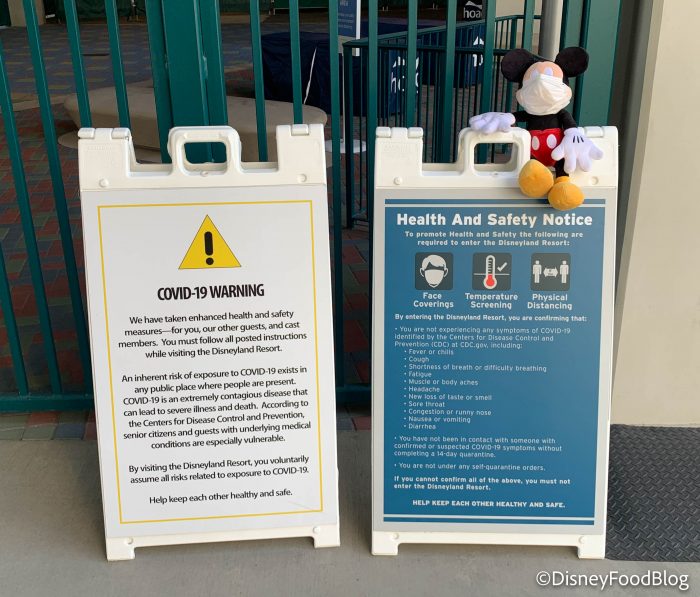


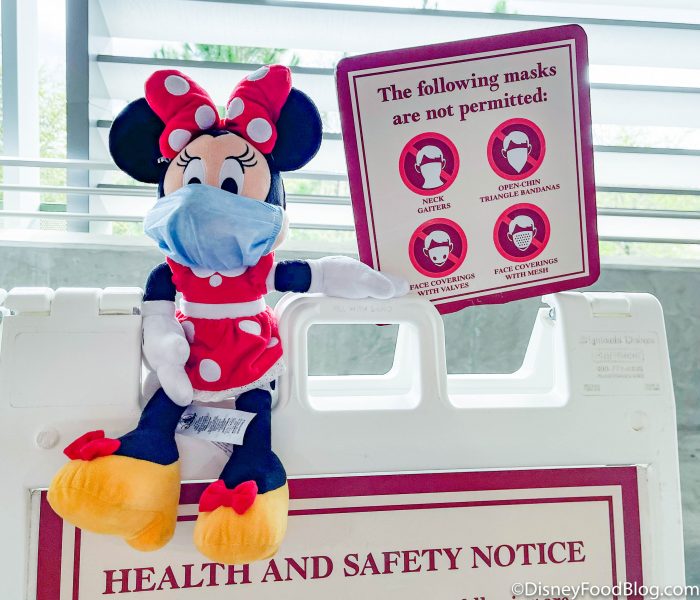


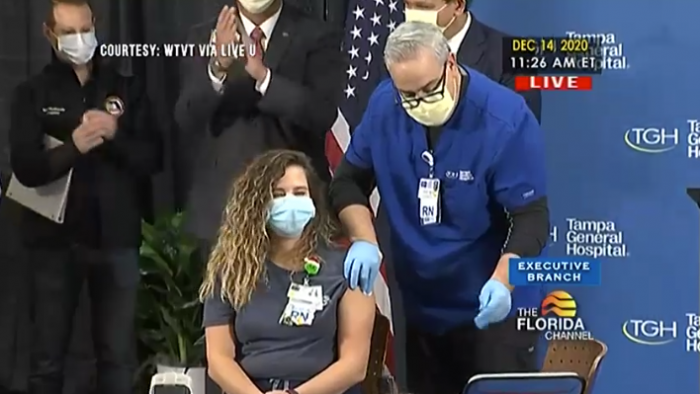
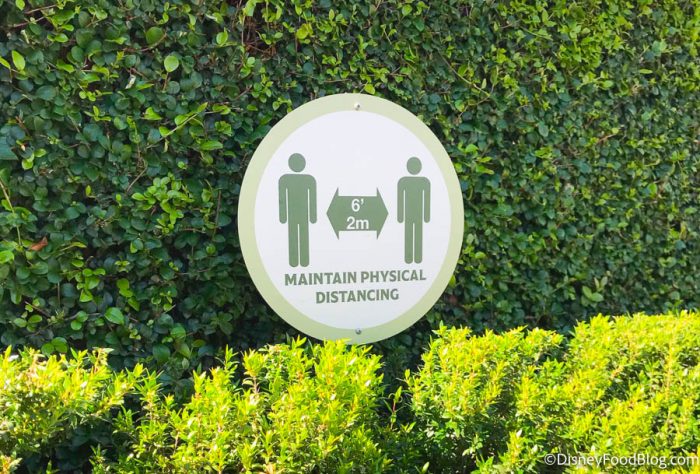


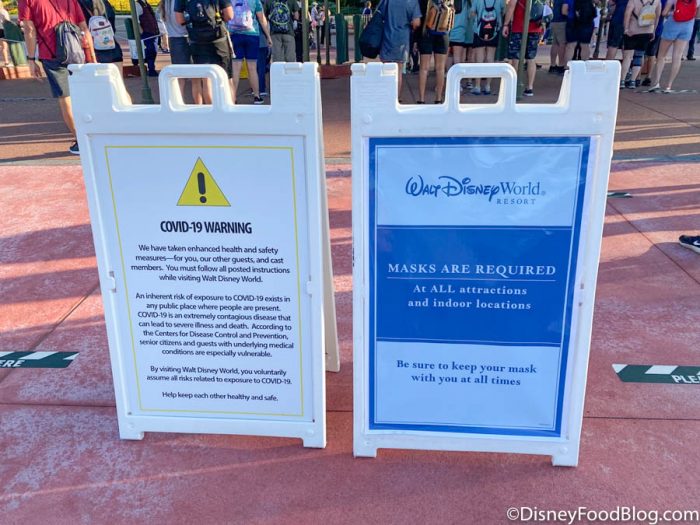

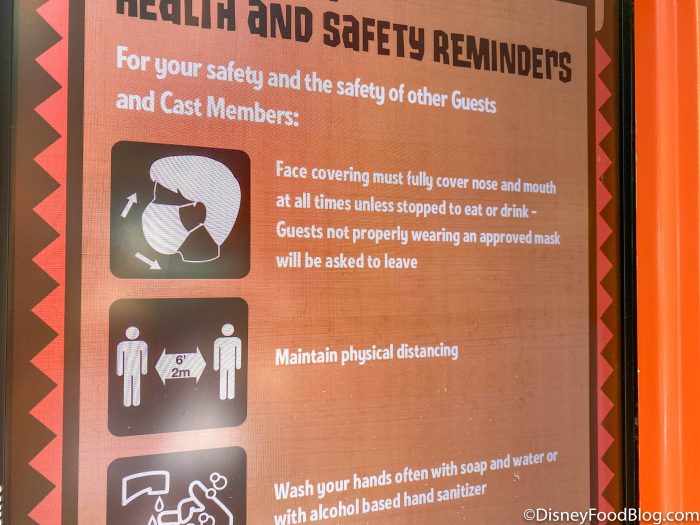


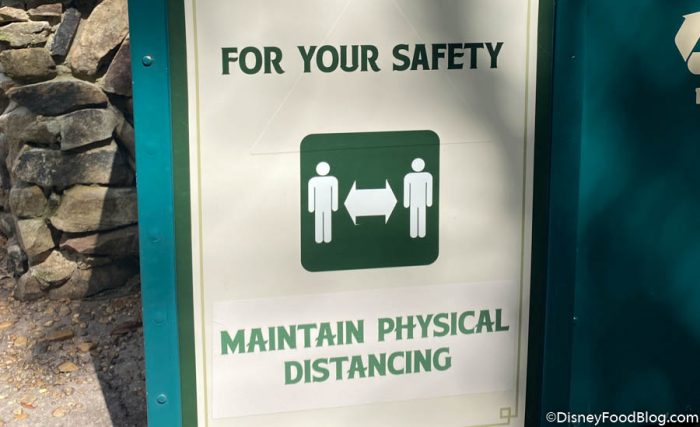
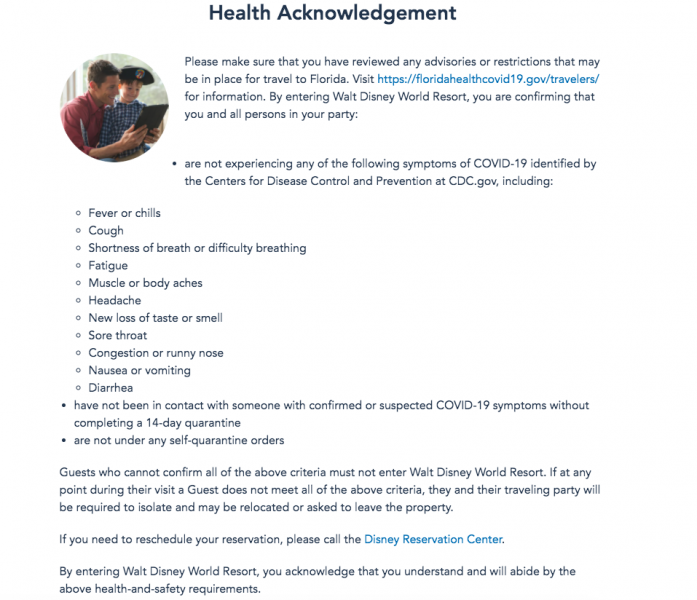
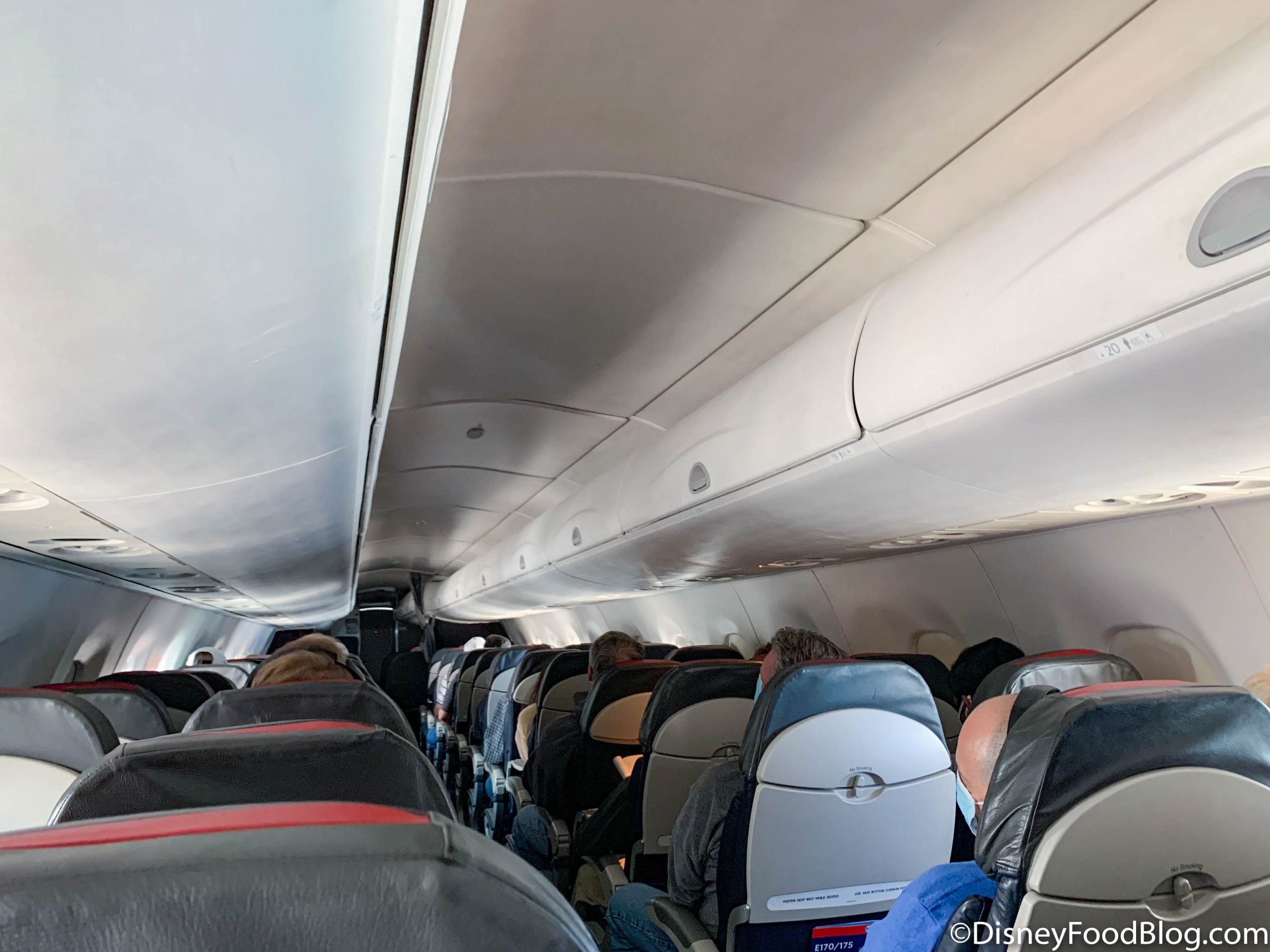










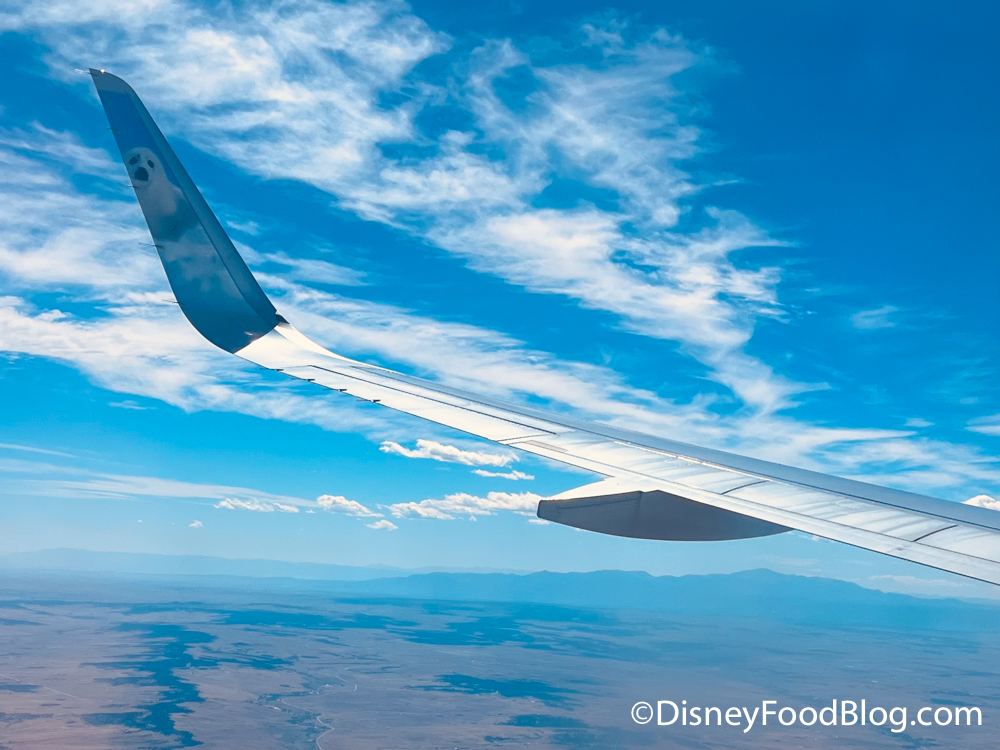



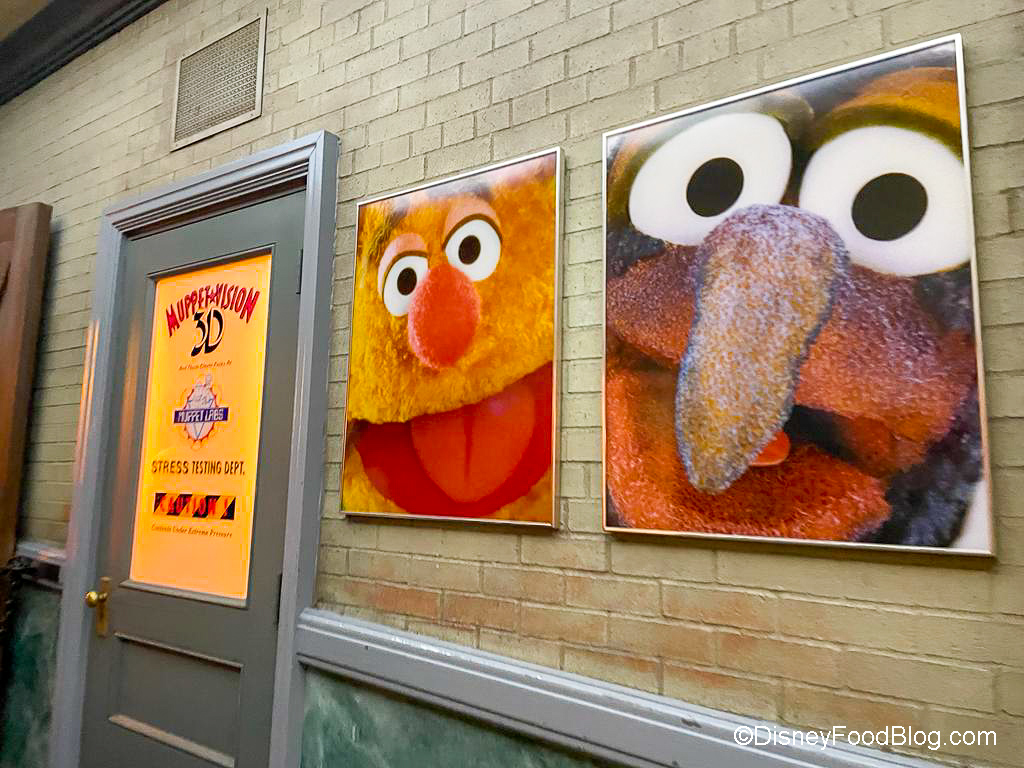




 Our handy (and portable!) ebook guides make sure you get the best deals and can plan a vacation of a lifetime.
Our handy (and portable!) ebook guides make sure you get the best deals and can plan a vacation of a lifetime.

How does Disney know whether or not someone is fully vaccinated? As far as I know they don’t ask for proof of vaccination. So it’s an honor system? Does Disney believe people are truly honest?
Thank you very much for providing these updates.
I find these very useful and hope to be back soon from the U.K.
Margi, I can’t speak to whether or not Disney thinks people are generally honest, but at this point, they are not asking for proof of vaccination.
Let’s put things into perspective. While the vaccines are not 100%, it is (so far) shown to be a decent protection from the delta variant. If you are vaccinated and are still worried about catching the virus from someone unvaccinated, don’t go and just stay home. Your choice, I’ve been cooped up too long and am ready to go, if someone that has not had the virus and/or is unvaccinated that is their choice now and I want to live and enjoy life!
I think these issues are they really true I got back from Disney World this Friday 99.5 of people had no masks . They were so close to each other at rope drop it was normal . If the new virus was at Disney World most everyone would be sick today . My family and I stayed away from people most of the time .
Disney World CANNOT ask for proof of vaccination because the Governor passed a law which fines a business $5,000 for each person who’s asked for proof of vaccination. That’s why there’s a big problem right now with cruise ship companies which want to start back again, but they wanted to limit passengers to those who’ve been immunized. Now they can’t do that because a $5,000 fine per person would be more than most passengers are paying for their cruise.
Insane to think that this virus is not going to cause precautions to be brought back to the parks at some point. WDW is just praying that they can keep this up until October 1, 2021 for the 50th. It’s all about money right now. Don’t be mistaken. You should mask up among this many people, vaccinated or not.
I’m trying to figure out if we should go to Disney. We are booked for the third week of August and my kids are under 12, so not vaccinated.
I am concerned about potentially large numbers of unvaccinated people and my kids getting sick.
but at the same time it was a lot of work planning it and I don’t know what kind of refund I could get for Park admission.
Hello AJ,
Thank you for your very well written article concerning the COVID 19 and the Delta variant. I agree with several respondents that current Florida law prevents Disney from identifying non- vaccinated people. This presents a greater concern to those who are unvaccinated since they risk exposure in pinch points in the parks.
We have flights, tickets, and resort reservations for two trips (one in August and one in September) for a total of 13 days. I am watching things carefully. If Disney goes back to masks and social distancing, we will cancel our reservations and stay home. We are not paying a Disney price to go and be miserable. We are strongly in the personal choice mind set. I don’t judge people who disagree with me and I respectfully ask for the same level of respect from others who disagree with me. We have tickets that expire because they are partially used, but we will just take the loss and stay home.
I was on the phone with Disney last night and they told me that as of 7/30 they will require masks in any indoor area, including parts of the ride queues.
I’m sure this won’t pass muster with the powers that be at DFB and won’t appear in comments but here goes.
You’re just adding to the hysteria with information taken from at best dubious sources .
IMO DFB is not the platform for this.
Your a Disney fan sight, not a medical advice column.
Our family went to wdw.last week of July. There were many sanitizing. Stations but they were empty. Not during there job in filling them . People very close to each other. Wish i would of waited.
Actually if you look Ed at the amount of Covid cases by state, Florida is in the middle less cases than my state of Illinois.
Thank you for at least addressing this issue. I have a trip planned that doesn’t sound like a good idea with the Delta variant. There is no online discussion I can find about Disney and the Delta. Its a no brainer that it’s not a good idea to go now with kids too young for the vaccine…..but I know of people that have gone recently and been fine, and I really wish cancelling wasn’t my best option. Can you start a poll of recent Disney travelers – if they came back with covid or not??
My family just returned from a 2 week stay. All are vaccinated. What shocks me was the children. Why would Disney allow any children under 12 admission to the park? More importantly, why would any parent expose their child. I felt very bad for the children.
I don’t take medical advice from CNN or the NYT, doctors who are paid by political interests or even the DFB.
I do my research by reading data and advice from institutions like the Mayo Clinic which states the following:
How likely is it for a child to become sick with coronavirus disease 2019 (COVID-19)?
While all children are capable of getting the virus that causes COVID-19, they don’t become sick as often as adults. Most children have mild symptoms or no symptoms.
According to the American Academy of Pediatrics and the Children’s Hospital Association, in the U.S. children represent about 13% of all COVID-19 cases. Research suggests that children younger than ages 10 to 14 are less likely to become infected with the virus that causes COVID-19 compared to people age 20 and older.
In addition, children with underlying conditions, such as obesity, diabetes and asthma, might be at higher risk of serious illness with COVID-19. Children who have congenital heart disease, genetic conditions or conditions affecting the nervous system or metabolism also might be at higher risk of serious illness with COVID-19.
So if your child is at risk, take precautions. Keep him wrapped up in a cocoon of fear if you like.
We took our perfectly healthy 6 year old grandchild to WDW in May where there were thousands of other children.
She was fine and so were thousands of others, I’m sure.
It’s up to the individual parent to decide what’s right for THEIR child
It’s also a fact that the seasonal flu is more dangerous to all children than covid 19 or Delta variant.
By the way, how did the seasonal flu just disappear? Haven’t seen stats on that lately.
Stop living in fear and take personal responsibility , use common sense.
People are doing more physical and mental damage to their children by making them breath in Co2 and heaven knows what else through unsanitary masks all day.
Hi, Eileen. Here’s a news post from the Mayo Clinic about why the flu was less prevalent in winter 2020-2021.
Hi Eileen, Here’s a current podcast from the Mayo Clinic about Covid and the Delta variant and what is being recommended.
https://share.transistor.fm/s/454952d0
My husband & I both had the 2 Moderna vaccinations in April. I’m still concerned about dining indoors (Le Cellier, Tuskegee House, etc. How distanced is the seating? What precautions are being taken? Thanks for any information!